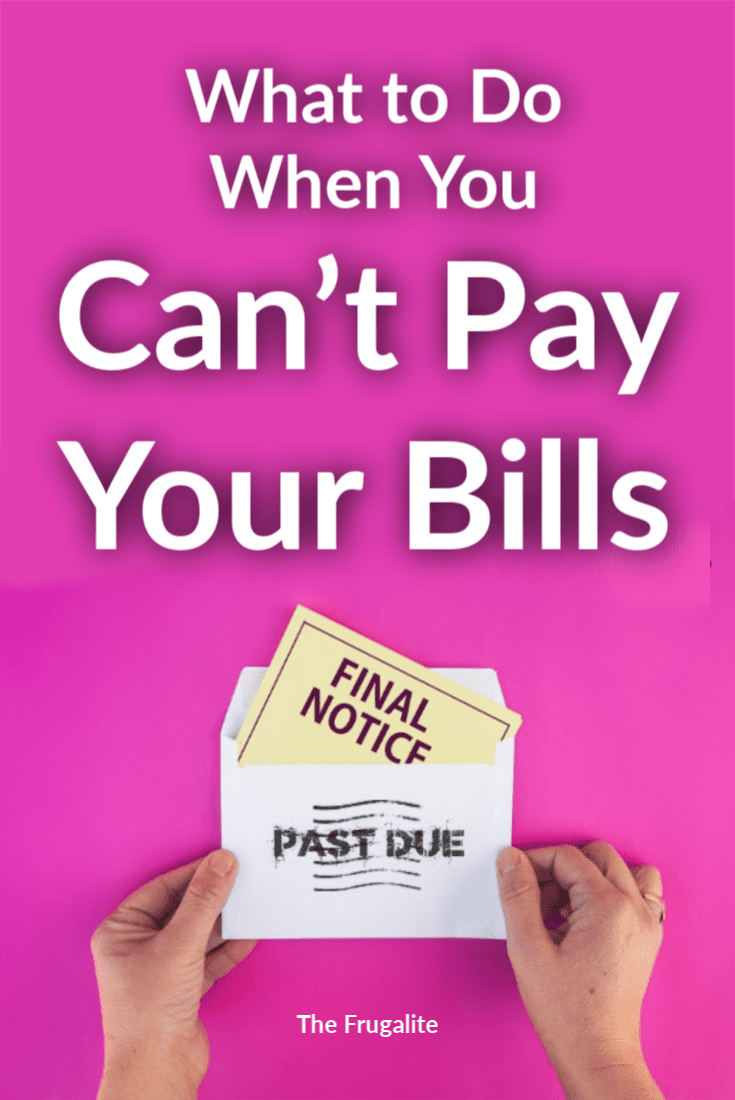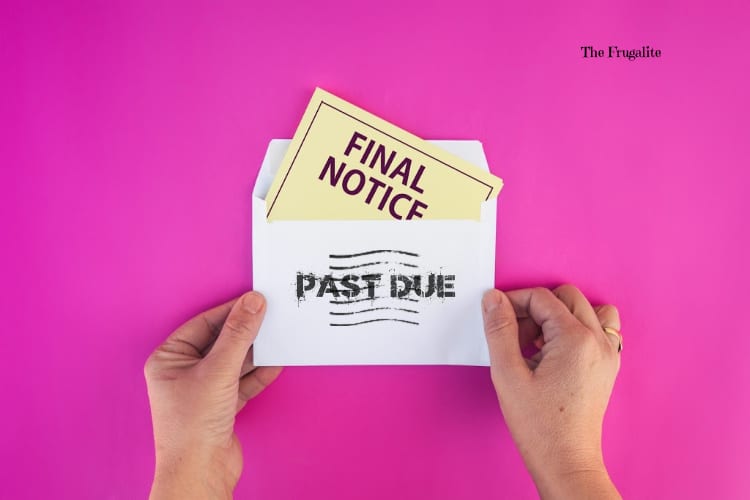(Psst: The FTC wants me to remind you that this website contains affiliate links. That means if you make a purchase from a link you click on, I might receive a small commission. This does not increase the price you’ll pay for that item nor does it decrease the awesomeness of the item. ~ Daisy)
Let’s talk about poverty.
I don’t mean the kind you’re talking about when your friends invite you to go shopping or for a night out and you say, “No, I can’t. I’m poor right now.”
I don’t mean the situation when you’d like to get a nicer car but decide you should just stick to the one you have because you don’t have a few thousand for a down payment.
I don’t mean the scene at the grocery store when you decide to get ground beef instead of steak.
I’m talking about when you have already done the weird mismatched meals from your pantry that are made up of cooked rice, stale crackers, and a can of peaches, and you’ve moved on to wondering what on earth you’re going to feed your kids.
Or when you get an eviction notice for non-payment of rent, a shut-off notice for your utilities, and a repo notice for your car and there’s absolutely nothing you can do about any of those notices because there IS NO MONEY.
If you’ve never been this level of broke, I’m very glad.
I have been this broke. I know that it is soul-destroying when no matter how hard you work, how many part-time jobs you squeeze in, and how much you cut, you simply don’t make enough money to survive in the world today. Being part of the working poor is incredibly frustrating and discouraging. I wrote about my situation in detail in this PDF. If you can’t afford the PDF, just send us an email to books@theorganicprepper.com and we’ll send you a copy at no charge, no questions asked.
It is a sickening feeling when you’re just barely hanging in there and suddenly, an unexpected expense crops up and decimates your tight budget. Maybe your child gets sick and needs a trip to the doctor and some medicine. Perhaps a family member is involved in an accident and can’t work for a few weeks. It could be that your car breaks down and you need it to get back and forth to work because you live too far out in the country for public transit.
We’re going to see this more and more.
As our economy continues to crumble, these are the situations going on in more homes across the country every single day.
It’s simple to believe that the people suffering like this are just lazy, or not trying, or are spending frivolously. No one wants to think that these things can occur through no fault of the individual. Why? Because that means these things could also happen to them.
Every time I write about crushing poverty, someone adds the comments section a smug declaration about how people need to get an education, hang on to a job, buy cheaper food…there’s a litany of condescending advice. I’m sure this article will be no exception, and please, if you’re in the situation I’m describing, let the criticism roll off of you. People who haven’t been there don’t understand and somewhere deep inside, they feel that by being critical, they can assure themselves they will never find themselves in a similar situation.
How do you prioritize when you can’t pay your bills?
The advice I have may not be popular, but let’s talk about prioritizing your payments when you can’t pay your bills. I am not promoting irresponsibility here. It’s just math.
When you have less money coming in than you have obligated to go out, you will not be able to pay all of your bills.
It’s that simple.
First, do a quick audit of your financial situation so you can see where you’re at.
Then you must prioritize. I know that you want to pay every single bill but that may not be possible right now. When you get your feet back on the ground, you can set up payment plans for the things you had to set aside while you were busy trying to survive.
This list of priorities assumes that you have some money coming in, but not enough to meet your obligations. You simply have to choose survival. I suggest the following order of payments.
1.) Pay for shelter first
Your number one priority is keeping a roof over your head. That roof may not be the roof of the house you are in now, though, if your circumstances have changed and you can no longer afford it. If you can still manage to pay your rent/mortgage, do so in order to keep your family housed.
If you rent, and your rent is a reasonable price, make this the first payment you make from your limited funds. You really, truly don’t want to be homeless and moving is expensive. Try your best to stay put.
If you own, consider your property taxes and insurance as part of your mortgage, because if you stop paying any of these, your home will be foreclosed on.
If you can’t pay your mortgage, property taxes, and insurance, you have a while before the home gets foreclosed on and you are forced to move out. If this is the case, it’s absolutely essential that you put aside money for the place where you’ll move should you have to leave your home. You’re going to need first, last, and deposits in many cases, particularly since your credit isn’t going to be stellar due to your financial situation. When you are in this situation, it can be difficult to force yourself to save money when so many things are being left unpaid, but if you ever hope to bail yourself out of this situation, you absolutely have to do this.
The laws vary from state to state, (find the specifics for your state here) but basically, this is the timeline:
- When you make the decision to let your house go back to the lender, you will have a month or two before they send you a notice of default.
- From that point, you usually have 3 months before the foreclosure proceedings begin. During those 3 months, you should be saving the money you would normally be putting toward your mortgage.
- At some point, you’ll get a notice to vacate the premises.
- When this happens, you have two options. You can choose to move to a different home, or you can file for bankruptcy, if you feel your situation is such that there is absolutely no way out.
- If you file for bankruptcy, the home can’t be re-sold by the lender for 3 more months, giving you more time to put aside money for your move.
Should we all pay the bills that we have promised to pay? Of course we should. Our word is very important. Remember, though, that the information here is for people who are in a position in which they DO NOT HAVE THE MONEY TO PAY.
So, the bottom line is this: either pay your housing costs or put aside money for future housing as your first expenditure.
2.) Buy food
You have to eat, and so do your children. If you don’t eat, you’ll get sick, and then your situation will be even more dire.
- Stick to simple, wholesome basics and cook from scratch. Beans and rice have fed many a family.
- Tap into your inner Southerner and make inexpensive, filling meals like biscuits and gravy.
- Make soup to stretch just a few ingredients to feed a family.
- Save ALL of your leftovers, even the ones on people’s plates. Add them to a container in the freezer and make a soup from that at the end of the week.
- Clean up after the potluck at church. Sometimes you can take home the leftovers.
- Don’t skip meals to stretch your food further. You need your health and your strength to overcome this situation.
- Go to the library and check out a book on local edibles. Go foraging in the park or in nearby wooded areas.
- See if your grocery store sells out-of-date produce for use for animals. There’s often a fair bit you can salvage and add to soups or casseroles. (This is the only way we were able to have vegetables and meat during one particularly painful stretch when my oldest daughter was young.)
In a worst-case scenario, food banks are an option as well.
3.) Pay for essential utilities
You should be cutting your utility usage to the bare minimum and using every trick in the book to keep your bills as low as possible.
If your utilities get shut off, it’s going to be difficult to cook from scratch and you won’t be able to keep leftovers from spoiling. You need the water running from your taps to drink, cook with, and clean. Depending on the climate and the season, heat may be vital as well.
If you can’t ay the entire bill, call the utility companies and try to make payment arrangements. If your utilities are shut off, then you will have a hefty reconnection fee on top of the bill.
Another point to remember is that our culture believes it’s absolutely necessary that all homes be plugged into the utility system. If you have a work-around, like wood heat and hand-pumped well water, and decide that your utilities are not essential, you need to be prepared to face those whose opinions differ. Some cities have condemned homes that are not connected to the grid, and if you have children who are of school age, sometimes a “concerned” teacher or neighbor has been known to report your situation to the child welfare authorities.
4.) Pay for car/work necessities
What must you have in order to keep working? For me, it’s the internet, since I work online. All of my clients contact me via email and the work I do requires that I be able to send it to them and research things online. I live in the country, so driving to the library on a daily basis would cost more than my monthly internet fees. For another person, this necessity might be the cost of public transit or keeping their vehicle on the road so that they can get to work. Choose the least expensive options to keep yourself working, but maintain your job-related necessities.
5.) Pay for anything else
After you’ve paid all of the above, if you have money left over, now is the time to pay your other expenses. These expenses include debt that you’ve incurred, contracts you are involved in (like cell phone plans, etc.) Choose very carefully how you dole out any remaining money.
- Keep one phone going, with the lowest possible payment. This is necessary for work, for your children or their school to contact you in the event of an emergency, and as a contact point for your financial situation. Compare the cost of a cell phone, landline, or VOIP phone. Every family member does not require a phone – you just need one. (I actually did go for a couple of years with no phone at all, but I’m uniquely antisocial and had email by which I could be reached.)
- If it’s at all possible, try to use the snowball method made famous by Dave Ramsey to pay off your debts and bail yourself out of your situation. Being free from debt will allow you to live a much freer life in the future.
- If paying off debt is not possible, try to make the minimum payments.
- If the minimum payments are not possible, you may have to default, at least temporarily, on debts.
- Buy some pantry staples. If you can add some extra rice or cans of tomatoes to the pantry, it will help see you through this tight situation.
- Be relentless in deciding what will be paid and what will not. This is not the time for arguments like, “But it’s our only form of entertainment” or “We deserve this one luxury.” Cut all non-essentials until things improve.
- Focus on the most frugal options possible.
Things will get better
I’ve been down this road. I really get it. It saddens me to see people I love in this situation now.
These books can help. I found them to be life-changing when I was broke, and the lessons have stuck with me throughout my adult life. You may be able to find them at your local library.
Finally, if you are in a situation in which you can’t pay your bills, I’m sorry.
I’m sorry about…
- The embarrassment you feel when you can’t afford to meet someone for coffee
- The sick feeling of seeing the bills pile up on the counter and not being able to do anything about it
- The knot in your stomach every time the phone rings and it’s a 1-800 number that you KNOW is a bill collector
- The stress of knowing you can’t remain in your home
- The fear that someone will say you aren’t taking care of your kids and they’ll be taken away
- The humiliation when people don’t understand and think it’s all your fault
- The hopelessness of watching the bank account empty out the day your pay goes in, and still having a dozen things unpaid
- The overwhelming discouragement of having fees assessed on top of debts you already can’t pay
- The anxiety over what tomorrow will bring
It will get better. You’ll find a way to make it work. You just have to survive while you make it happen. Maybe you will pool your resources with another family, or get a raise, or find a cheaper place. But you will find a way.
Life may not be exactly as it was before, but it will be good again.












8 thoughts on “What to Do If You Can’t Pay Your Bills”
Thank you for putting the emotional component out there. It eventually becomes PTSD (as you’ve alluded to) and it’s very debilitating. The condescending group is larger than we imagine and those who are suppossed to help by position or job or both and don’t is absolutely debilitating, humiliating, and infuriating.
Great planning list you’ve laid out above.
This is by far the best thing written on this subject. And I want to emphasize again to not listen to the condescending group on how you “should” do things. That is not helpful at all.
I am lucky being retired military I have a check coming in once a month. My husband is 100% Disable Veteran who was medically retired. Our life style is conservative. I only have one bill which is my land payment. No credit cards. The house is being paid for as we build it, so no mortgage. We are off grid and have our own well. We buy used older cars so no car payments. We are not the problem. We have acquired three of my daughters bills. Her house payment, phone payment and a loan payment. I am sure we are not the only case of supporting adult children due to a variety of reasons. I have read of a growing number of adult children moving home due to the lack of jobs or poor paying jobs. During the depression it was not unusual for multiple generations to live in one house. My heart goes out to all those who do not have someone to lean on it hard times.
There is another option not yet discussed for if your funds no longer can support a fixed location roof over your head. There are millions of people especially in the high cost coastal states (like California) that have experienced this in a brutal way — with the likelihood of millions more to join their ranks as eviction moratoriums are ending. Many of them have been forced to “go nomadic” by living in their vehicles, whether a car, truck, SUV, van, RV, towable camper, or whatever. YouTube has several channels all about this and several of those experienced nomads have produced detailed how-to books and ebooks (cheaper and quicker to obtain) on copied with that new lifestyle. One of the longest running channels is from Bob Wells via “CheapRVliving” but once you view some of his videos, YouTube will always display a list of “related” videos that often includes similar material from similar nomads. Once you jot down a list of some of those other nomadic channels, you can click on those channels, go to the videos list within those channels, and see an extensive instant access library of clickable videos all about the how-to of that lifestyle — before you run a search on Amazon for books and ebooks on the same topic.
IF you are still able to keep a vehicle running, it beats living in a tent city under a bridge, etc…
–Lewis
Fine article, all points sound. Undeserved involuntary poverty of earnest striving people who at least subsisted in better times or whose forbears of equal merit, ability & performance lived well in former times proves the fact of America’s collapsing economy & rat trap labor market for those below a certain favored line. Multitudes are not YET in such dire straits merely by the grace of God & the smarter of them would profit by learning that pronto. Now we reap the whirlwind of letting our alleged betters sow strife, discord, animus, envy, confusion, nonsense & other unworthy attitudes via 230 years of statism starting with Alexander Hamilton’s patent KNOWN unconstitutional central bank followed since by direct personal income tax, arbitrary bureaucratic regulation, war, militarism, imperialism, welfarism, compulsory pedagogy, credentialism, fluoridated water, gun point medicine, corporatism, palliation of social problems versus addressing root causes, communitarianism, domestic subversion, wars on such abstractions as poverty, gold, guns, drugs, peace–condemnation of isolationism–state rights, cash & self reliance & basically just what Ayn Rand called the false morality of altruism. What other other mundane result could obtain but widening & deepening poverty despite full time work, deprivation, humiliation & even desititution? How many of us who are no longer young have spent most of our lives vainly warning of all this to scoffers some of whom are now on the greased slide of mandated downward mobility? The end of this lunacy can not come too soon!
The single largest source of unpayable bills in America is medical. Since the introduction of Medicare and Medicaid, medical bills have skyrocketed. At the same time there is an enormous problem of fraudulent hospital billing — some from double billing, some from products or services not provided, etc, etc. Most such patient victims have no idea that some remedies may be possible. There are organizations that can act on the patient’s behalf to investigate such bills and sometimes can negotiate them down considerably. Some of those organizations can even teach patients how to do that negotiation themselves.
But there will be some cases where such expert negotiation is only partly helpful or sometimes in case of a fully accurate bill … not helpful at all. And if such a bill is so enormous that any prospect of ever having a normal life again is not foreseeable, there is a DIY alternative to filing bankruptcy. In such cases one needs to learn what the relevant state’s law is regarding their statute of limitations — after which a bill is no longer collectible. 4 years is common but one must learn the exact length of time in the relevant state. And that knowledge is relevant for an unexpected reason.
A bill collector will often try to persuade the debtor to at least make partial payments. What the debtor usually does not know is that any such partial payment resets the statute of limitations so that it begins all over again. That destroys the strategy of just waiting out that statute of limitations so one can begin a more normal financial life again.
One strategy to help fend off that partial payment trap is to only take phone calls through an answering machine (or the electronic equivalent) … and only pick up calls from people one recognizes. That usually fends off a bill collector’s highly skilled guilt-trip purveyor who is very practiced at pushing debtors into unwise choices.
Another situation is where a home buyer for whatever reason is no longer able to keep the mortgage payments current and the risk of foreclosure is very near. If the home buyer can sell quickly, there is an opportunity to at least preserve some of the equity built up — instead of having to walk away with empty hands. There is a thriving industry of “We buy houses” buyers who can even rehab houses before reselling. Typically they try to keep a desperate home owner from shopping their offer around — which usually means that shopping such offers around is exactly what is needed in order to get as much cash as possible for a clean start.
–Lewis
Back in the 70’s I sold my plasma for $7 so I could have money to eat.
I sold everything I owned, moved into a long term hotel on skidrow in New Orleans and then worked as a waitress. $27 week rent for the room was a big chunk out of my pay and tips.
I ate cheap po’boys, red beans and rice and whatever the church kitchen was serving.
I was lucky. I only had me to worry about at the time.
It has to be twice as hard having kids
The amount of assistance is highly dependent on the state in which you live. In my state, gas/electric cannot be turned off during the winter (basically November thru March). Dependent children typically qualify for medical/dental/vision and adults may also qualify. Grants are available to help with heating costs (paid directly to the utility company AND renters whose heat is included with rent *may* also get some assistance). Far too often I’ve read that adults would NEVER apply for assistance (food, utilities, rent, medical/dental/vision). An adult wants to be a martyr, fine by mean. But if his/her/their children suffer, that is child abuse in my book. If never asking for help is the hill on which you, and you only want to die, so be it (just don’t cause the rest of society’s health costs to increase). But make darn sure YOU are the only person dying on that hill. Despite the best plans, life happens.